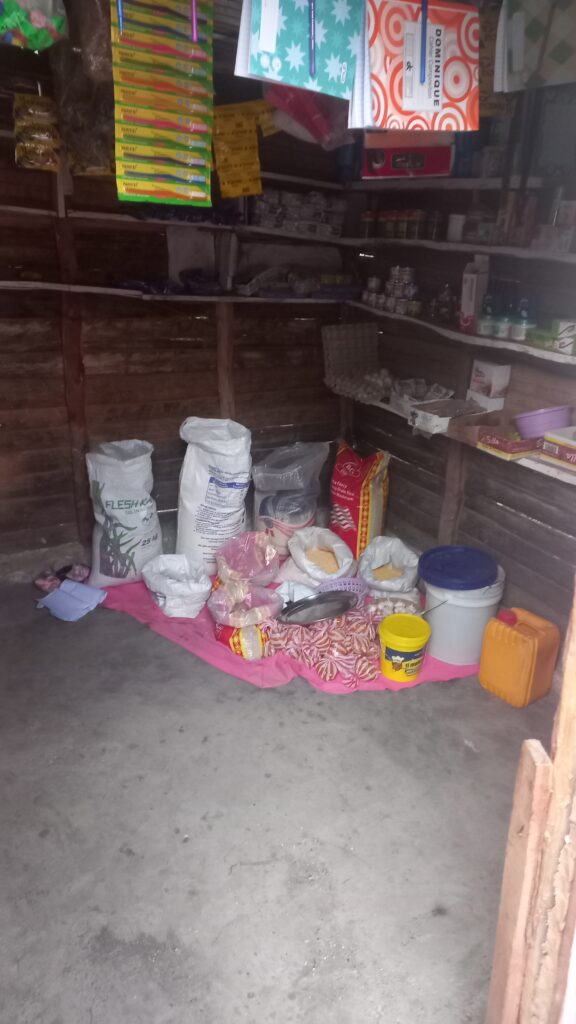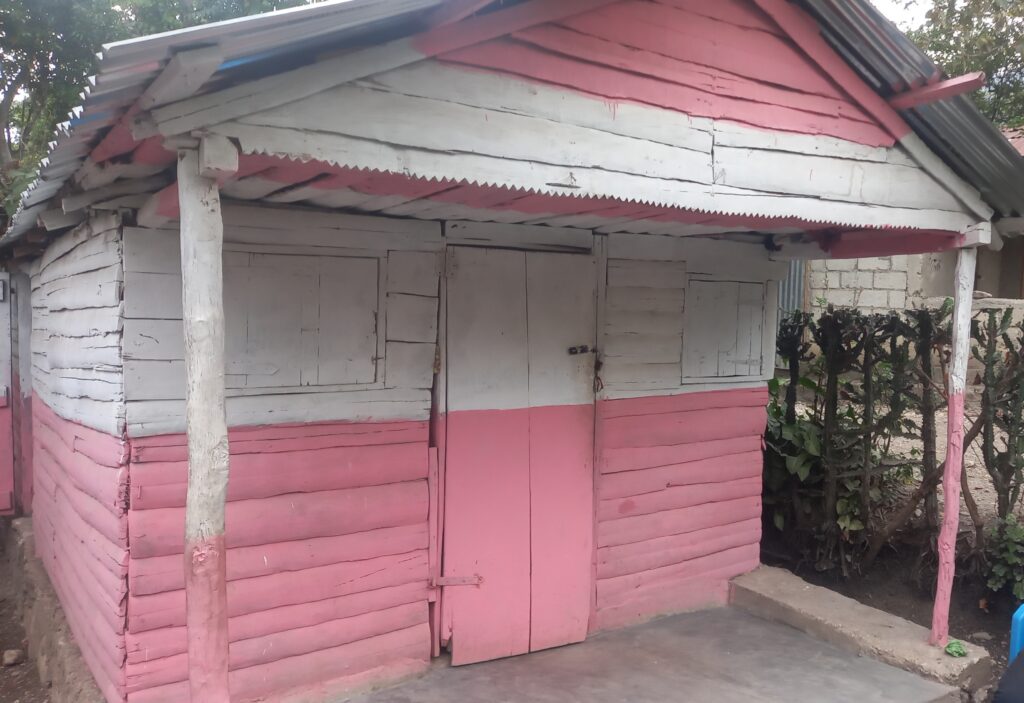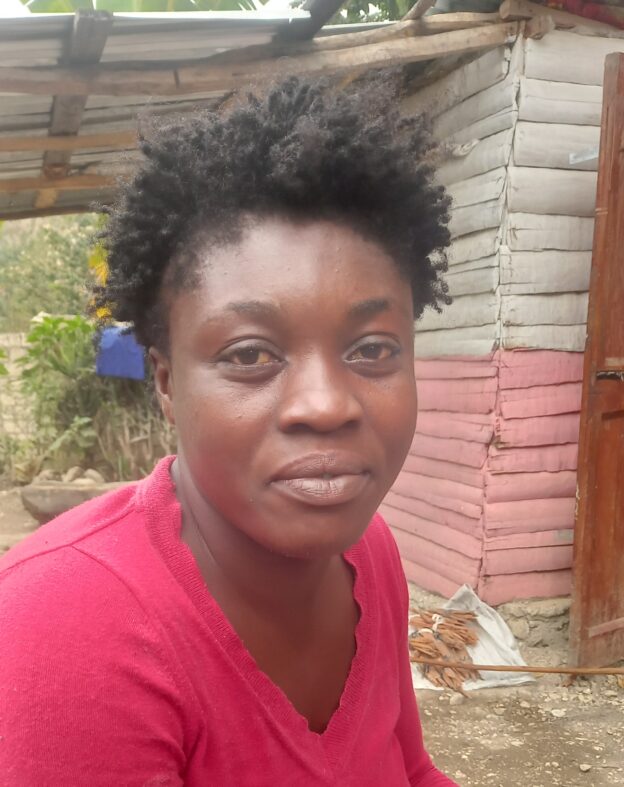Vernette and her husband Rodrigue live with their two small children just east of downtown Savanèt on the dirt road that winds all the way to the Dominican border. Before their family joined the CLM program, they really struggled. Rodrigue got work when he could as a mason’s assistant, mixing cement with a shovel or lugging blocks or buckets of cement for skilled builders. Vernette would occasionally do laundry for neighbors.
Vernette asked the program to give her goats and small commerce, but she’s been able to do very little with them. The very small plot of land they live on gives them very little space for goats to graze. She received two and she chose to buy a third, but they haven’t reproduced. She started buying poultry, but her luck with that has been even worse. Most of what she’s acquired simply died.
But she had no trouble qualifying for graduation, because she built up a small grocery business that she runs out of her home, and it is succeeding well.

To say that she runs it out of her home is misleading, however. In fact, she and Rodrigue built a a separate one-room shack next to the two-room house she built as a member of the program for her business. And the construction of the two buildings is an interesting story.
When she joined CLM she was living in a home, but not a shelter. The walls of her then-home were falling apart. Its roof was in ruins. It could not keep her and the family even minimally dry. She could not establish a business, because she had no way to secure her merchandise. Or anything else. She would complain to Rodrigue, but he had no interest in helping her build a new home. “He would always say that many women had it worse than I did.”
Faced with the chance to receive the program’s support, she decided she had to act. She started pulling out the rotted wood planks from their home’s walls, making their situation worse. She wanted to bring Rodrigue to recognize and grow ashamed of their circumstances. She started talking to neighbors, friends, and anyone who would listen about Rodrigue’s unwillingness to do anything.
It worked. As Vernette says, “He was embarrassed. So when he saw the 22 sheets of roofing that the program gave me, he got to work, collecting the lumber we needed. Before long, the family had a dry, secure home. Rodrigue realized he had done the right thing on the first rainy night. “He was so happy that we were dry.”

With a secure home, she was able to start to grow her business. But there was a problem. With just two small rooms for her family and her merchandise, there was not enough space. She and her case manager talked about it, and they talked with Rodrigue. By this point, his attitude had changed. He was ready to help however he could. And he used income from his labor to buy what they needed — roofing material, lumber, and cement — to build a second small structure in their yard. That second building is now her shop.
And Vernette has bigger plans. She cannot sell her goats right now, because they are not in good shape. But Rodrigue has agreed to help her nurse them back to health. He takes them with him into the fields when he does his farming. She hopes that when her savings club ends its next one-year cycle, she be able to take her payout along with whatever she can get from selling the goats to buy a cow. Owning a cow will put her and Rodrigue on their way to achieving their larger goal. They want to buy more land.
